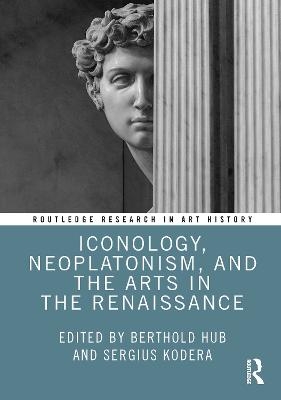
Iconology, Neoplatonism, and the Arts in the Renaissance
Routledge (Verlag)
978-0-367-89529-7 (ISBN)
The mid-twentieth century saw a change in paradigms of art history: iconology. The main claim of this novel trend in art history was that renowned Renaissance artists (such as Botticelli, Leonardo, or Michelangelo) created imaginative syntheses between their art and contemporary cosmology, philosophy, theology, and magic.
The Neoplatonism in the books by Marsilio Ficino and Giovanni Pico della Mirandola became widely acknowledged for its lasting influence on art. It thus became common knowledge that Renaissance artists were not exclusively concerned with problems intrinsic to their work but that their artifacts encompassed a much larger intellectual and cultural horizon. This volume brings together historians concerned with the history of their own discipline – and also those whose research is on the art and culture of the Italian Renaissance itself – with historians from a wide variety of specialist fields, in order to engage with the contested field of iconology.
The book will be of interest to scholars working in art history, Renaissance history, Renaissance studies, historiography, philosophy, theology, gender studies, and literature.
Berthold Hub is Lecturer at the University of Vienna and visiting professor at the Beuth Hochschule für Technik Berlin. Sergius Kodera is Senior Researcher at the New Design University St. Pölten and external reader in Philosophy at the University of Vienna.
Introduction 1. Erwin Panofsky’s Idea (1924) 2. "My Friend Ficino". Art History and Neoplatonism: From Intellectual Beauty to Material Beauty 3. Seeing and the Unseen: Marsilio Ficino and the Visual Arts 4. Negotiating Neoplatonic Image Theory: The Production of Mental Images in Marsilio Ficino and Giovan Battista della Porta’s Magic Lamps 5. In Quest of Beauty: Gender Trouble in the Orlando Furioso 6. Neoplatonism and Biography: Michelangelo's Ganymede before and after Tommaso do' Cavalieri 7. Botticelli’s Primavera and Contemporary Commentaries 8. "HIC EST HOMO PLATONIS": Two Embodiments of Platonic Concepts of Man in Renaissance Art 9. Iconology as a Spiritual Exercise: The compositio loci in Ignatius of Loyola 10. Neither Drunk nor Sober: Dionysiac Inspiration and Renaissance Artistic Practices Appendix: Twilight of the Gods for Neoplatonism (1986/1992)
| Erscheinungsdatum | 25.09.2020 |
|---|---|
| Reihe/Serie | Routledge Research in Art History |
| Zusatzinfo | 33 Halftones, black and white; 33 Illustrations, black and white |
| Verlagsort | London |
| Sprache | englisch |
| Maße | 174 x 246 mm |
| Gewicht | 453 g |
| Themenwelt | Kunst / Musik / Theater ► Kunstgeschichte / Kunststile |
| Geschichte ► Allgemeine Geschichte ► Neuzeit (bis 1918) | |
| Geisteswissenschaften ► Philosophie ► Philosophie des Mittelalters | |
| ISBN-10 | 0-367-89529-3 / 0367895293 |
| ISBN-13 | 978-0-367-89529-7 / 9780367895297 |
| Zustand | Neuware |
| Haben Sie eine Frage zum Produkt? |
aus dem Bereich


